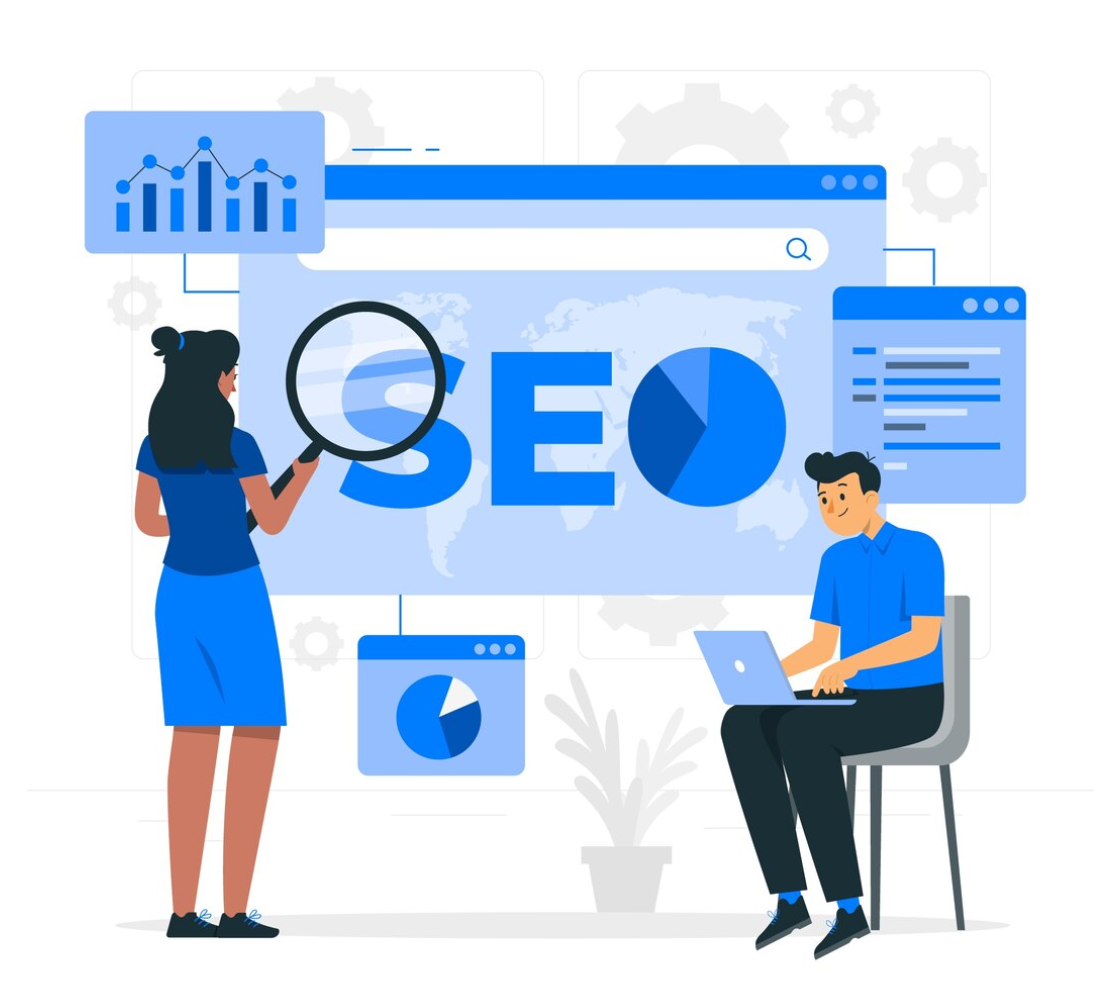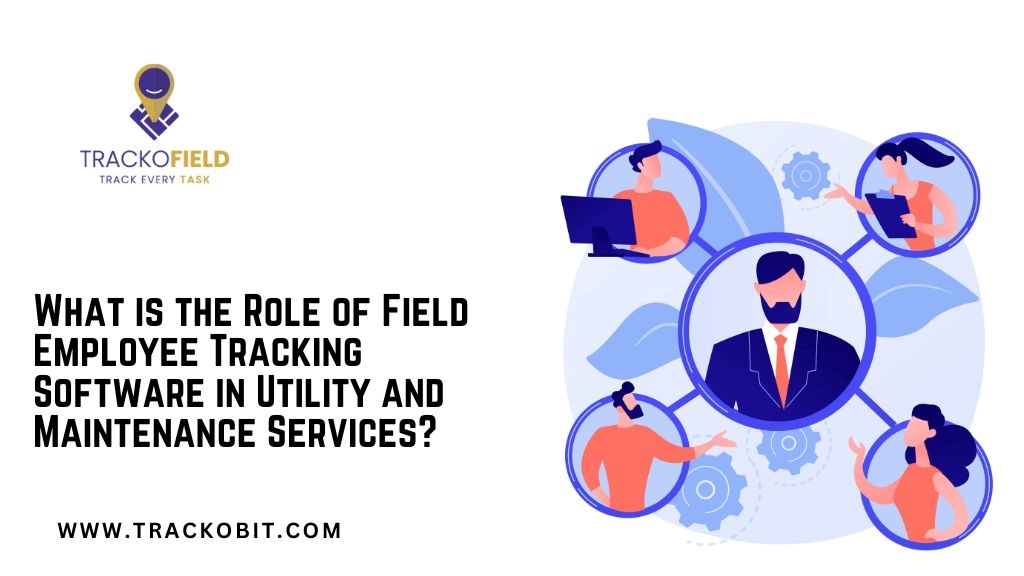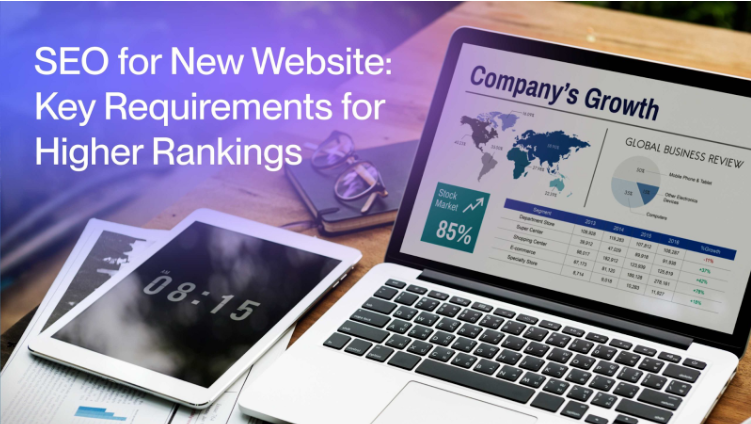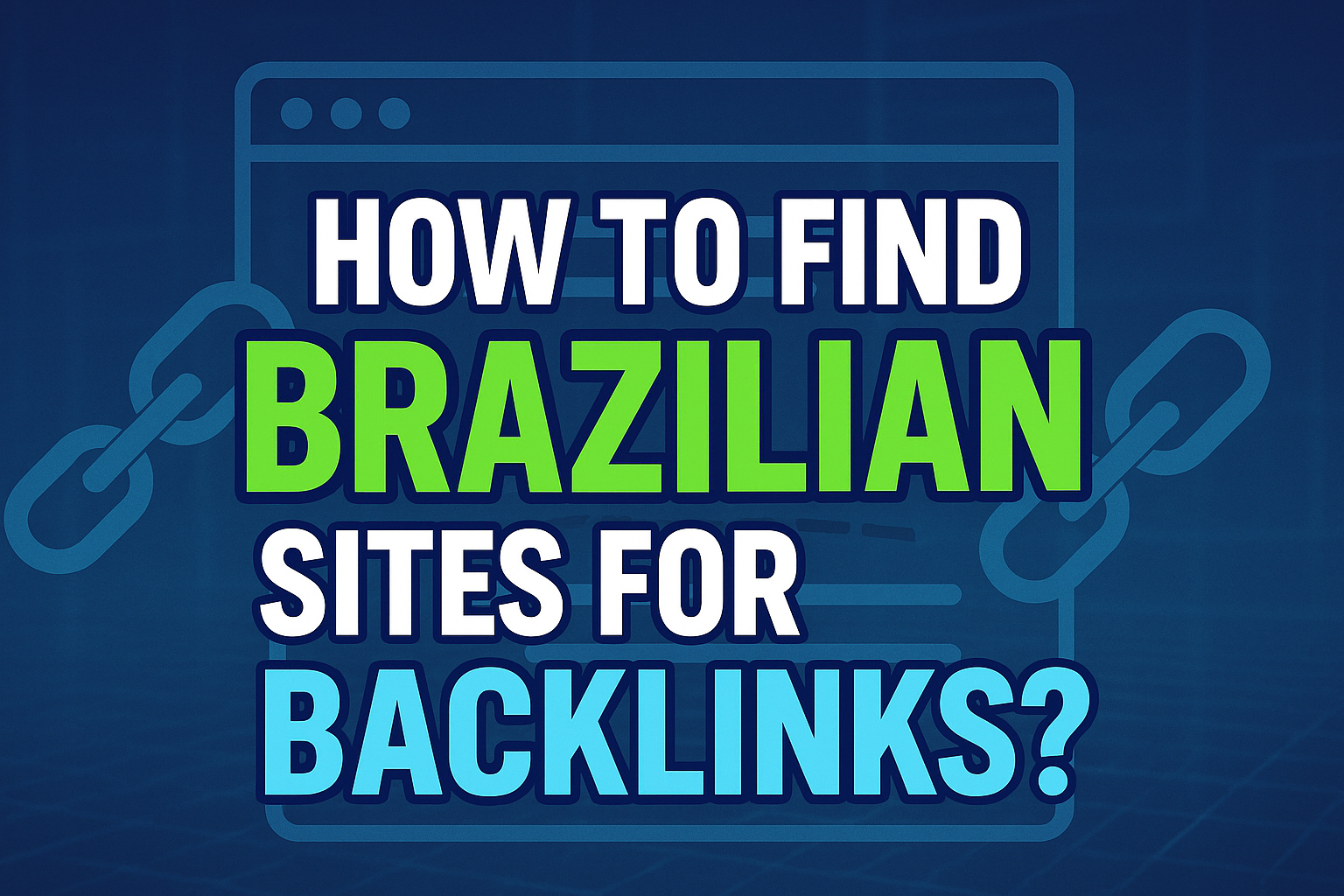
How often do you reach for your phone in a day, instinctively opening Google to answer a question, settle a debate, or find the perfect restaurant? If you're like most people, it's probably more than you can count—without even thinking about it.
Google processes 5.9 million search queries every single minute. That would be like the entire population of Singapore searching for something simultaneously, all within 60 seconds.
Search Engine Optimization (SEO) is a practice that allows businesses to reach their audience and increase organic traffic through search engines. It has been around since the late 1990s and will continue to be a driver of traffic for years to come. Like most industries today, AI is changing the face of SEO, but that doesn’t have to be a bad thing.
Let’s explore the intricacies of future-proof SEO strategies and how AI can help businesses enhance their SEO strategies to stay current, reach more customers, and increase engagement.
Why SEO is Still Relevant in 2024 and Beyond
SEO, a dynamic and ever-changing industry, remains a crucial aspect of marketing in the digital age. As long as search engines exist and customers can reach your website creater through a search engine, SEO will continue to be a relevant and powerful tool.
User Search Behavior and Experience
At its core, SEO is a digital marketing strategy that not only benefits businesses but also enhances the user experience.
Although the digital space in 2024 is a far cry from what it was even just a few years ago, user search behavior has been essentially unchanged. Most people still use search engines to find information, which means SEO will always have a space in a digital marketing strategy.
Moreover, search engines continue to tailor their algorithms in a manner that rewards content that serves user intent. In practice, this means going beyond simple keyword matches and focusing on intent-driven content that genuinely answers user needs.
Integrating AI into SEO Strategies
AI-Powered Data Analysis
The primary reason for any organization's lack of action is not the lack of data but a lack of means to process that data. On a website, every single user action is recorded—clicks, scrolls, you name it.
SEO professionals can harness the power of artificial intelligence to swiftly process vast amounts of data, empowering them to derive actionable insights on user behavior and website performance.
AI is able to analyze user interaction data such as:
- Clicks,
- Bounce Rates,
- Dwell time,
And plenty more. Through information derived from AI-powered data analysis, SEO experts can determine what kind of content keeps users more engaged and moving content in that direction.
Moreover, AI tools can help organizations understand user behavior and curate effective customer journeys. SEO experts can prioritize content that resonates with the organization’s audience by personalizing content according to the pain points that impact customer behavior.
Content Optimization through AI
Content optimization is a cornerstone of effective SEO strategies. With the aid of artificial intelligence, SEO professionals can optimize content in ways that align with search engine algorithms, significantly boosting productivity and effectiveness.
For example, a marketing team can use AI writing tools like Jasper to assist with creating SEO-optimized articles that focus on specific keywords or phrases. Doing so will help scale production significantly, especially when utilized alongside experienced writers. Additionally, AI-based tools like a grammar checker free of charge can assist content creators in maintaining a high level of accuracy and readability, thus maximizing the appeal and rankability of the produced SEO content.
AI can also help SEO professionals analyze the user intent behind various search queries, allowing them to create content that ranks well and genuinely helps users in need. Let’s take a look at several examples:
- If a user types in “best laptop for students,” the search intent behind their query is likely informational or comparative. AI-powered tools like Frase or SurferSEO can help generate content that users will resonate with. For instance, users will likely click the article “Top 10 Laptops for Students in 2024: Affordable, Lightweight, and Long-Lasting.”
- If a user types in “how to make a sourdough bread,” it’s likely that they’re beginners looking for instructional content. That is, users probably want a detailed guide on how to make sourdough bread at home. Using AI-generated recommendations, a content writer could use a title that resonates with the user’s intent, like: “Easy Sourdough Bread Recipe: A Beginner’s Guide with Step-by-Step Instructions.” A title like that shows the user that they are about to read a guide that will tell them precisely what to do, especially in the context of beginner baking.
- AI can also help SEO professionals identify ambiguous customer intent. For instance, if a user searches “best running shoes,” an AI tool like AnswerThePublic may be able to reveal any secondary intent, such as “best running shoes for flat feet” or “best running shoes for marathon training.” Understanding what users need beyond what they type explicitly is an integral aspect of a solid SEO strategy. In this instance, a writer could use a title such as “Best Running Shoes of 2024: Top Picks for Marathon Training, Flat Feet, and More.” This title allows users to understand that they are about to go through a list of footwear suggestions specifically catered to their needs.
- Voice search optimization is a rapidly growing area of SEO that focuses on more conversational and intent-focused queries. For instance, when a user utilizes a voice search such as “Where is the best pizza near me?” It is implied that the user is looking for a transactional and local answer to their query. An optimized response would be to create content that provides immediate answers (as voice search often favors direct and concise answers). The content should also explicitly include working hours, details about the restaurant, and the available service lines (dine-in, takeaway, or delivery). AI tools like Yext can help improve a company’s strategies when creating content for local queries.
Enhanced Keyword Research Through AI
Keyword research has always been integral to optimizing a website. Using the right keywords is one of the primary ways your audience can reach your site. While SEO is much more than just simply adding keywords to a page, the appropriate use of relevant keywords remains a powerful SEO tactic.
AI can equip businesses with the most relevant keywords and long-tail keywords that competitors might overlook. Furthermore, AI can identify emerging trends in keyword usage before they become mainstream, providing marketers with a strategic advantage through early adoption.
AI can also help identify keywords that provide additional context to the main search topic, which improves the content’s overall relevance to search engines while still remaining aligned with user intent.
Automated SEO Audits
SEO doesn’t end suddenly when you have the content up and ready on your website. Instead, it is a continuous process that requires constant fine-tuning, updating, and adjusting where necessary. This ongoing process is particularly crucial in specialized industries like construction, where ContractorNerd's SEO services adapt to changing market dynamics and customer search behaviors.
SEO audits are a critical aspect of a good SEO strategy and are necessary to identify any issues that could impact your site’s rankings. Audits will uncover issues such as:
- Broken links;
- Slow load times;
- Mobile optimization issues.
The advent of AI has made doing SEO audits much simpler and faster. Tools like Screaming Frog or Sitebulb can crawl websites, detect technical issues, and provide potential solutions. As a result, you can spend less time on manual site analysis and focus more closely on your overall sales strategy.
As AI transforms SEO, platforms like Softo play a vital role. With over 218 tools for SEO experts, teachers, and students, Softo.org simplifies tasks like keyword research and site audits, helping professionals optimize their strategies efficiently.
The Future of SEO in an AI-Dominated World
Now that we understand how AI impacts the SEO industry, let’s talk about the future of SEO in an AI-dominated world.
Generative AI
Good content is the lifeblood of SEO. If a brand produces content that speaks to customers and their needs, there’s a much greater likelihood of conversion than if the content is bland, boring, and undistinguishable from others of the same kind.
In recent years, AI has gotten exponentially better at generating content. Previously, AI-generated content would be clunky and stiff. But now, numerous models can produce material that closely mimics natural language patterns. With this, brands can augment their SEO strategies through AI-assisted content generation. For example, companies can use AI to:
- Create engaging product descriptions;
- Write meta descriptions and title tags;
- Curate answers to customer FAQs;
- Enhance landing page copies.
The list goes on. Generative AI can be a fantastic way for a company to become more efficient while increasing conversions.
However, it is also crucial to remain wary of an overreliance on generative artificial intelligence. Human creativity and emotion also need to be a part of any content strategy—human content creators can reach your audience in ways that would not be possible simply by focusing on technicalities.
Automation in SEO
Automation is one of the more impactful things you can do with AI. With human talent coming at a premium, it is much more cost-effective to automate repetitive and low-level tasks that do not require human creativity.
AI can automate tasks like
- Keyword research;
- SEO Audits;
- Rank Tracking;
- Link Building.
By allowing artificial intelligence to focus on tasks that require repetition, organizations can focus their human capacity on more high-level tasks such as authentic content creation, strategic decision-making, customer relationship building, and creative problem-solving.
However, AI can still be used in more high-level operations. For example, organizations can leverage both AI and human expertise through the following:
- AI-assisted content creation where AI tools generate outlines for writers and SEO professionals can adjust the content to ensure it aligns with the brand’s voice and identity.
- Automated SEO audits with human interpretation where AI-powered tools scan for technical issues while experts prioritize problems based on the brand’s overall goals.
- Automated reporting with strategic insights where SEO tools provide technical reports on rankings and backlinks but leave it to SEO professionals to adjust their strategy and make critical decisions about content updates.
AI and Ethics in SEO
In any conversation surrounding artificial intelligence, the topic of ethics is an inevitability. However, it is for a good reason. AI often reaches into conventionally creative spaces, taking up room that without AI, creative human minds would typically fill—especially in fields like SEO, where creativity and technicality align.
When integrating AI into their practices, businesses have to be careful not to cross into black-hat SEO techniques, which can be unsustainable and potentially detrimental to a brand.
Instead, marketers should utilize AI as a means of augmenting their already existing SEO processes and allowing a team to be more efficient with their time and use of resources.
Conclusion
SEO isn’t going anywhere. While so many things about SEO have changed since the rise of the concept in the late 1990s, the core idea remains the same: optimizing a website to reach more people through search engines.
As artificial intelligence becomes a mainstay in nearly every aspect of humanity, SEO experts and digital marketers have to keep up as well. Using AI can be daunting, especially in the beginning, but incredibly rewarding.
With appropriate and ethical use, AI has the capacity to improve website rankings, increase engagement, and increase conversion rates with a future-proof SEO strategy.



